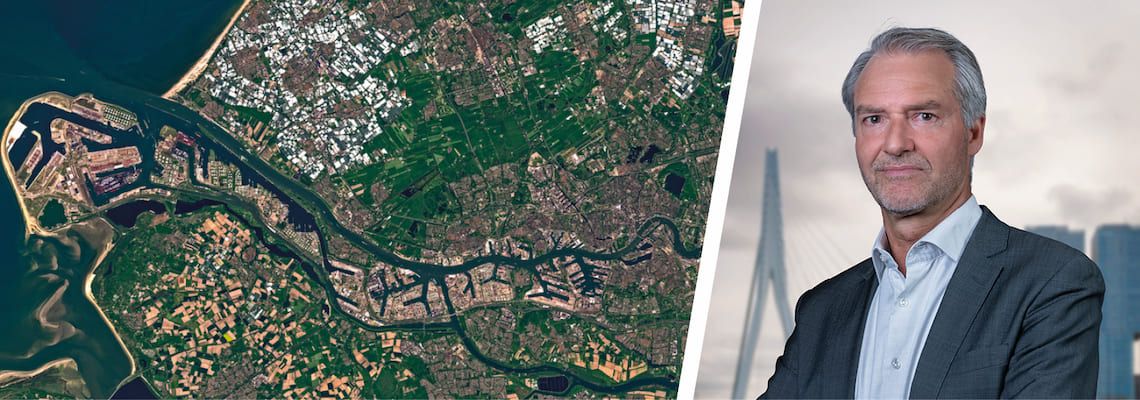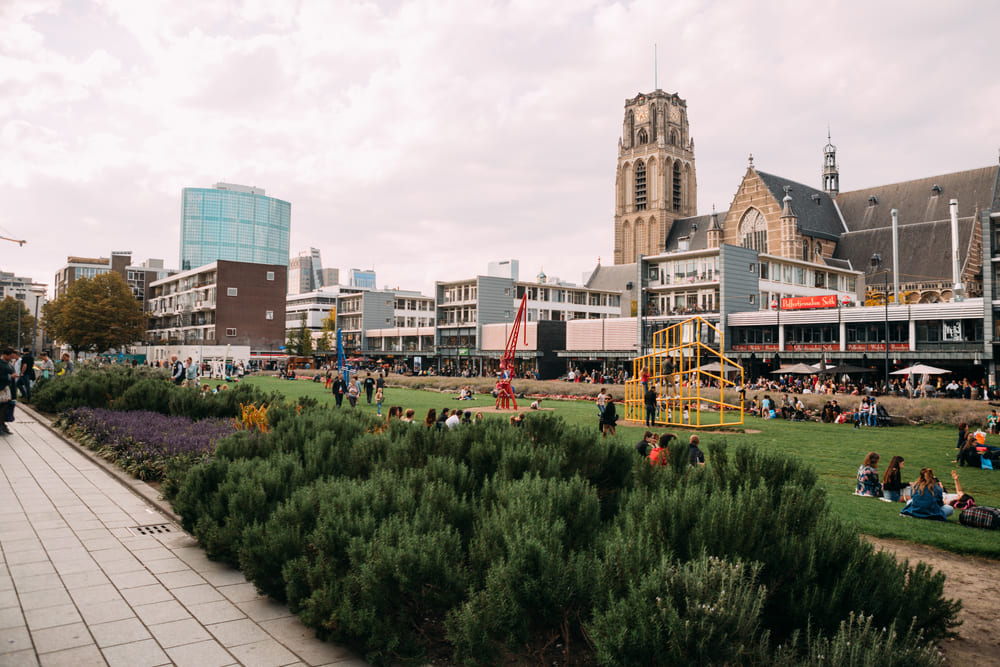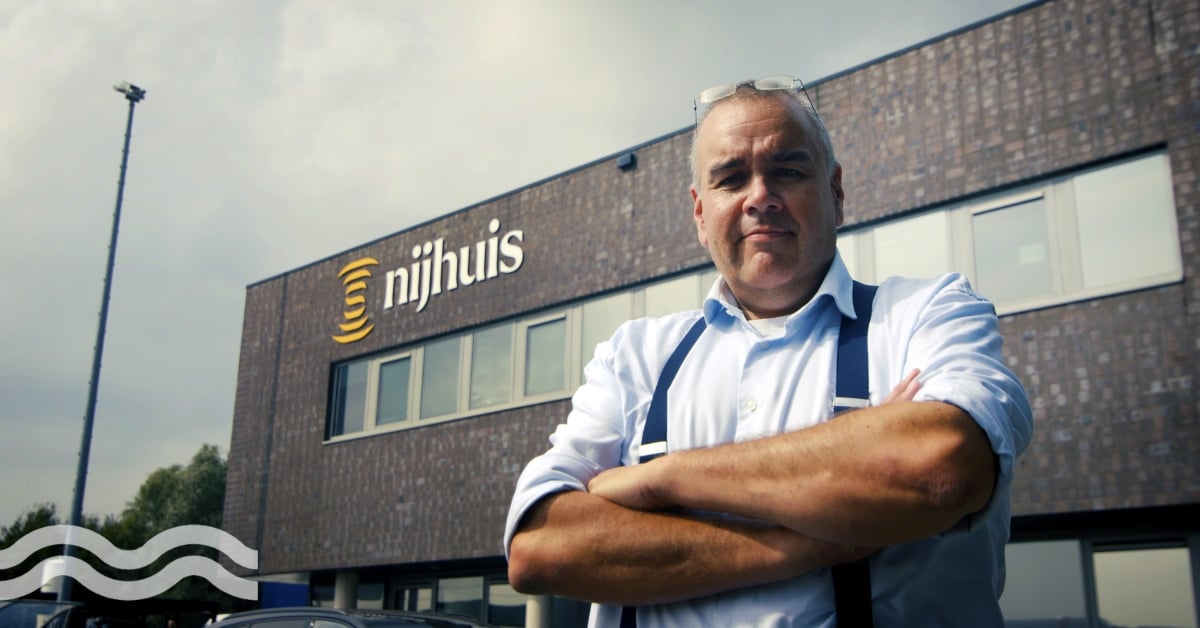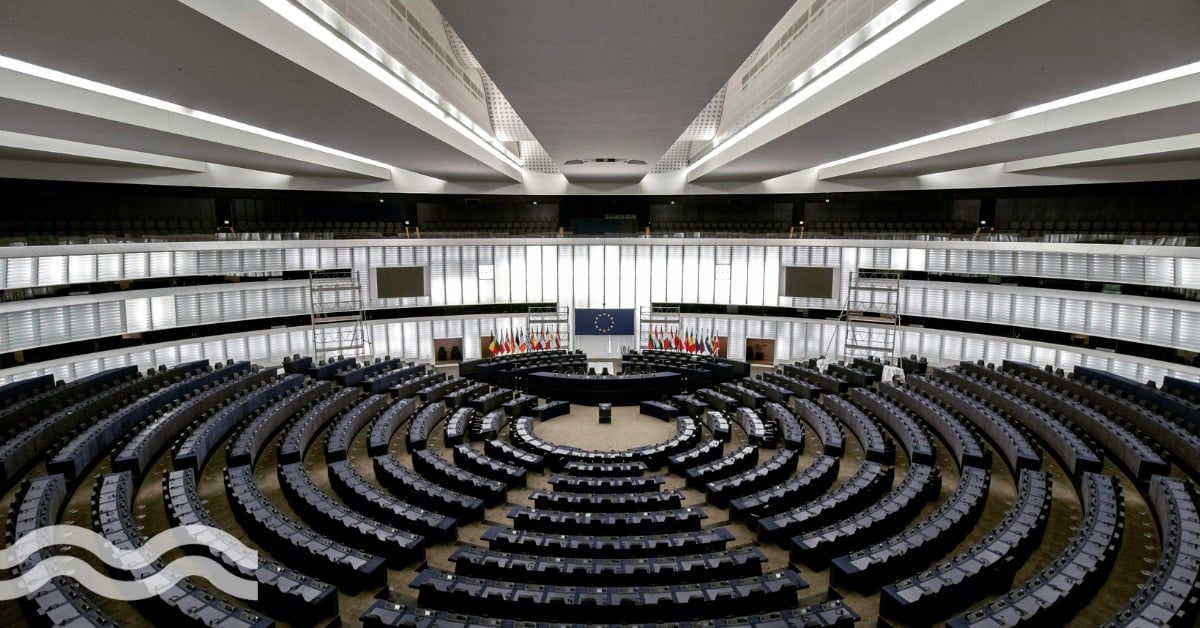Arnoud Molenaar: Rotterdam’s resilience leader
Arnoud Molenaar, chief resilience officer for the City of Rotterdam, played a pivotal role in putting the Dutch city on the map when it comes to climate adaptation.
Helping to give Rotterdam elasticity
Arnoud Molenaar is one man who certainly knows the meaning of the word “resilience”.
As the chief resilience officer for the City of Rotterdam, he even has it in his job title. Molenaar has played a pivotal role in helping to put the Dutch city on the map when it comes to climate adaptation.
Rotterdam is frequently cited as an example of a city that has a certain “toughness” and “elasticity” to bounce back and recover from difficulties.
Responsible for the design and implementation of the Rotterdam Adaptation Strategy in 2013, Molenaar led Rotterdam towards a leading position on innovative urban water management and climate resilience.
Aquatech Online: Rotterdam has secured the reputation as a resilient city and a leader, but in your experience, has the definition of resilience changed?
Arnoud Molenaar: Until maybe four years ago, we never used the word resilience. It is not a Dutch word. But in that way, talking about climate adaptation and resilience, you could say we changed the perspective on resilience by seeing it in a much broader way. Resilience is not only about technical and physical adaptation - it is also about cyber resilience and social resilience.
The concept of resilience has changed into a more integrated approach, especially with respect to building back better. There is the preparation side – to prepare for a shock or stress and have the ability to recover. But resilience is more than that. It’s also about learning from the experience to build back better.
Aquatech Online: We are hearing this phrase more and more now, to “build back better”. Resilience is not just building back to where you were, it's back to a more positive state.
Arnoud Molenaar: Yes. So that's why reflectiveness is an important quality. When you have insight into lessons learned and vulnerabilities, you are able to build back better.
Aquatech Online: Normally, water becomes a political priority when there's an emergency. You have managed to get it on the agenda, perhaps, when it wasn't such an emergency. What advice or tips would you give from this experience?
Arnoud Molenaar: We succeeded to get the theme of water framed in a positive way on the agenda by showing the value of water, instead of focusing on the urban failure we put an emphasis on the urban quality of water. It was in 2005 where we had an architectural biennial with the theme of the flood. We used this to develop the vision of Rotterdam Water City 2035 to open the eyes of people and politicians to show what we can do if we redesign the city using water as a design principle.
And so we showed the quality. For example, waterfront developments create value for the city - houses, literally, are more expensive and have a higher value when they have a view on water. If we are able to increase more water storage by investing in surface water bodies in the urban area, then we are investing in adaptation and in urban quality at the same time.
Aquatech Online: The city doesn’t just benefit – you’re giving people a better quality of life, better views as well?
Arnoud Molenaar: Absolutely. One example when it comes to redesigning the public space, are water squares. It’s a way to redesign the public space so that you also create more meeting places, places for sports, or even theatres. It's good for social resilience in that specific district, but at the same time, the same measures are also an answer to climate change.
Aquatech Online: So what would you say is one of the biggest hurdles when it comes to urban water innovation, not policy or governance, but deployment and scaling of the solutions?
Arnoud Molenaar: You mean really innovation or just implementation?
Aquatech Online: I think the implementation is often the major challenge on innovation.
Arnoud Molenaar: Very true.
Aquatech Online: You must have seen some phenomenal urban water innovations only for them not to scale further. What do you think are the major barriers here?
Arnoud Molenaar: On one hand, it's certainly the finance. So even in a relatively rich Western city like Rotterdam, you'll never have enough finances to invest at the needed speed and to reach the speeds that you want. And I think maybe you can frame it as a hurdle, but it takes time to develop participation processes and design, and implement it. So from designing to really implement things, and digging and turning the stones in the city, that is costing time. That's maybe a good thing because in our case we rarely specifically take measures just only because of adaptation. We always want to piggyback on what is going on in the city.
Aquatech Online: The Resilient Cities Network was recently launched as a new phase in the development of the 100 Resilient Cities initiative. How important is international collaboration for you – Rotterdam has partnered with Houston, Texas, right?
Arnoud Molenaar: Yes, this is a good example. I always link back to what we call the “multi-layer” approach and specifically on water safety. You have to be prepared: to prevent, be prepared for flooding that's the second layer, and the third layer is you have to be able to evacuate. The fourth layer is the recovery. And in Holland, we are very good in the first. You could say the first - that's the highest one on our agenda. We invest much money in prevention, but we also are working more and more on the preparedness level. But the evacuation part, and the recovery part, that's not really high on our radar because we trust very much on the first layer.
Aquatech Online: If you get the first layer (prevention) right, then theoretically, you would not have to evacuate?
Arnoud Molenaar: Right. But in looking at US cities, for example, they spent relatively less on prevention, much less, but more on preparedness and they are quite good at evacuation. And that's, for example, one of the things that we can learn.
Another one is more the participation of the public and social resilience. And it's also, I think, maybe a historical thing, that in Western Europe, the governments, the national governments, are doing a lot on the regulation side. And the public has become accustomed to the government doing a lot to protect them. So that's why many citizens and the wider public in US cities are better organised themselves, and therefore more resilient.
Aquatech Online: Necessity is the mother of invention, so if there’s a major storm and there hasn’t been investment into those top two layers, then people have no choice but to be prepared and evacuate?
Arnoud Molenaar: When Hurricane Sandy hit New York, there were many initiatives. Many residents in neighbourhoods knew each other, and they were prepared - the same for Hurricane Katrin.
There are examples of many initiatives on neighbourhood levels. Many volunteers are active far more than in our situation. That's why I think we can learn from US cities regarding evacuation and preparedness and social resilience, and the other way around. They are visiting us to find out how we prevent that situation.
Aquatech Online: If nations can learn from each other’s strengths, then it’s a win-win.
Arnoud Molenaar: Another example is how Paris learned from our water squares in Rotterdam after a visit in 2015, and they translated that concept into resilient schoolyards. And we are using that example now in our resilient BoTu district. So that's, I think, a great example of how cities exchange and learn.
Aquatech Online: What are you hoping to learn from your participation in the next Aquatech BreakOuts?
Arnoud Molenaar: I think it's interesting to share with each other where we are now, and maybe we also should relate it to COVID-19. In the pandemic crisis, what does it mean for the other challenge that we all are facing, and that is climate change? Climate change is also a crisis, but we were not framing it as a crisis. So what's the influence of the current crisis on how we should deal with the adaptation?
Aquatech Online: Do you think the pandemic has given people an added sense of urgency?
Arnoud Molenaar: Well, a sense of urgency, maybe, regarding resilience in general, but I don't think many people connect the pandemic with climate adaptation, to be honest. We have a pandemic, but I think there are still only a few people realising that we already were in a crisis.
Related content
- Anusha Shah: This is our last chance
- Future-proof water plan in the Netherlands
- Deltares launches BlueEarth Data platform
- VIDEO: Tour the Kaumera plant that creates bio-gum from water
- Explore all our coverage related to urban water
Share your water technology stories with us
Do you have an innovation, research results or an other interesting topic you would like to share with the international water technology industry? The Aquatech website and social media channels are a great platform to showcase your stories!
Please contact our Sr Brand Marketing Manager Annelie Koomen.
Are you an Aquatech exhibitor?
Make sure you add your latest press releases to your Company Profile in the Exhibitor Portal for free exposure.
We promise never to send you spam and you can unsubscribe at any time!



.jpg?h=628&iar=0&w=1200)

